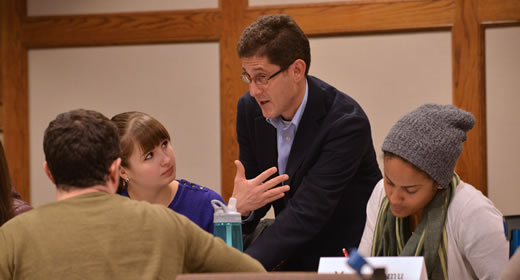
"The single best way to avoid... selection problems and determine the causal impact of a policy or program is through a randomized control trial. While such experiments can be expensive and are often logistically or politically difficult, they have a long history in education policy research," writes Brian Jacob in his most recent Brookings blog, "What we know about Career and Technical Education in high school," published October 5.
Jacob emphasizes that Career and Technical Education (CTE) programs have been important parts of the education policy realm since the early 20th century. The first federal law providing funding for vocational training was passed in 1917, before education was compulsary in every state, he says. But there is a dearth of quality data for state-level CTE programs.
"There are 83 programs with experimental or quasi-experimental evidence in the area of early childhood education, 39 programs for dropout-prevention, and 32 programs for English language learners," writes Jacob. While all of these studies will provide education researchers with the data essential to understanding program outcomes, in the case of secondary CTE programs, he argues, there is only one such study.
If states are serious about investing in career and vocational education, Jacob writes, they will have to get serious about collecting data on CTE program outcomes. And then, they must make that data available to policy researchers who can evaluate how effective these programs are for the students who enroll in them.
Brian Jacob is the Walter H. Annenberg Professor of Public Policy at the Gerald R. Ford School of Public Policy and a professor of education and economics--all at the University of Michigan. He is co-founder and co-director of the Ford School's Education Policy Initiative, which engages in applied, policy-relevant research designed to improve educational outcomes and reduce disparities.
More news from the Ford School